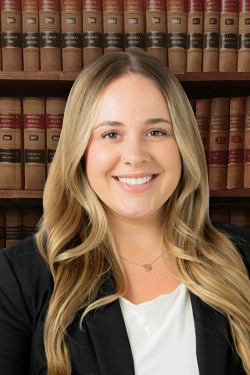Real estate, whether that is a primary residence, vacation home, or investment property, is a major part of family wealth. Not surprisingly, there are many misconceptions regarding how real property can be titled and what that means for the owner(s), spouse, and other family members.

Here we will take a closer look at the most common deed titling options in Pennsylvania and how they affect transfers at death, asset protection and inheritance taxes.
Sole Ownership
An individual who owns real property outright, maintains full control of the property.
What to know:
- PA Inheritance Taxes: the property will pass through probate and the full value is subject to varying PA inheritance tax rates (0%, 4.5%, 12%, or 15%) depending on who the heir or beneficiary is
- No Asset Protection: sole ownership allows for full exposure to creditors, lawsuits, and possibly a divorcing spouse
Tenants in Common
Two or more owners, each with a separate, undivided interest in the property. Each owner’s share would pass by their will or trust, or Pennsylvania’s intestacy laws (if no will/trust).
What to know:
- Allows flexibility in ownership percentages (can be varying amounts of interest amongst the owners)
- The shares can be sold and transferred by the individual owners and there is no requirement to transfer or sell to the other owner(s) of the property
- PA Inheritance Taxes: the ownership interest of a decedent will go through probate (unless owned by trust) and varying PA inheritance tax rates (0%, 4.5%, 12%, or 15%) are applied, depending on who is inheriting the decedent’s interest in the property
- No Asset Protection: each separate share of interest in the property is subject to exposure to creditors, lawsuits, and possibly a divorcing spouse
Tenants by the Entireties (Married Couples Only)
This is a form of joint ownership available only to married couples in Pennsylvania. This ownership is special because it offers a different level of protection than the other types of joint deeds.
What to know:
- This form of ownership legally treats spouses as a single entity
- Spouses cannot sell or transfer their interest without the other’s consent
- Divorce will terminate this type of ownership and will likely be converted to tenants in common if ownership in the property is retained by both spouses
- Must be acquired during marriage (before marriage acquisition does not automatically convert once married)
- Automatic Survivorship: when one spouse dies, the surviving spouse automatically owns the entire property
- No PA Inheritance Taxes: no probate is required and no inheritance tax is due. PA’s inheritance tax rate for transfers to a surviving spouse is 0%
- Creditor & Asset Protection: if one spouse is sued, the property is protected from the creditors of that spouse; creditors cannot impose a lien based on the sole actions of one spouse (only joint debts and lawsuits can threaten the property)
- Note: creating a joint revocable living trust with your spouse and retitling your home into the name of the trust will remove the above protection
Joint Tenants with Right of Survivorship
This ownership is similar to tenants by the entireties, but is available to unmarried, joint owners and does not afford the same level of asset protection.
What to know:
- Equal 50/50 ownership between the joint owners
- Automatic Survivorship: when one joint owner dies, the surviving owner automatically inherits the first decedent’s share and owns the entire property
- PA Inheritance Taxes: only the deceased owner’s share of the property (½) is taxable at the appropriate tax rate for the surviving joint owner (0% for spouses, 4.5% for lineal descendants, 12% for siblings, and as high as 15% for others)
- No Creditor Protection: there is no protection from lawsuits or creditors impacting one of the owners
Ownership In a Revocable Trust
The deed to real estate can be prepared to transfer the property to a revocable trust.
What to know:
- No Probate: the property held in a revocable trust transfers outside of probate at death
- PA Inheritance Taxes: the full value of the property is subject to varying inheritance tax rates depending on who the beneficiary is
- Asset Protection for Beneficiaries: the real property does not receive any asset protection while the Grantor is living, however, trusts created for the beneficiary at the death of the Grantor can have significant asset protection
What’s Best for You?
Deed ownership should be structured to match your individual goals. There are many great opportunities for asset protection, tax avoidance, and probate avoidance. Call us today at (610) 933-8069 to schedule a review of your plan!

